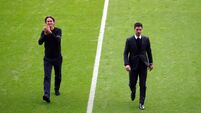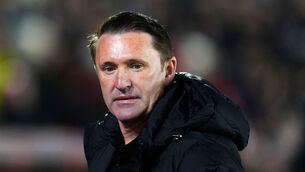Italians count cost of scandals
Italy’s great footballing tradition, world-famous stadiums, and excellent record of organising sporting events like the 1990 World Cup, made them many people’s favourites to win the vote, which was made by UEFA’s executive committee in Cardiff.
The headline on the front of Wednesday’s La Gazzetta dello Sport summed up Italians’ confidence of success: “(Michel) Platini will give us Euro 2012,” it read.














